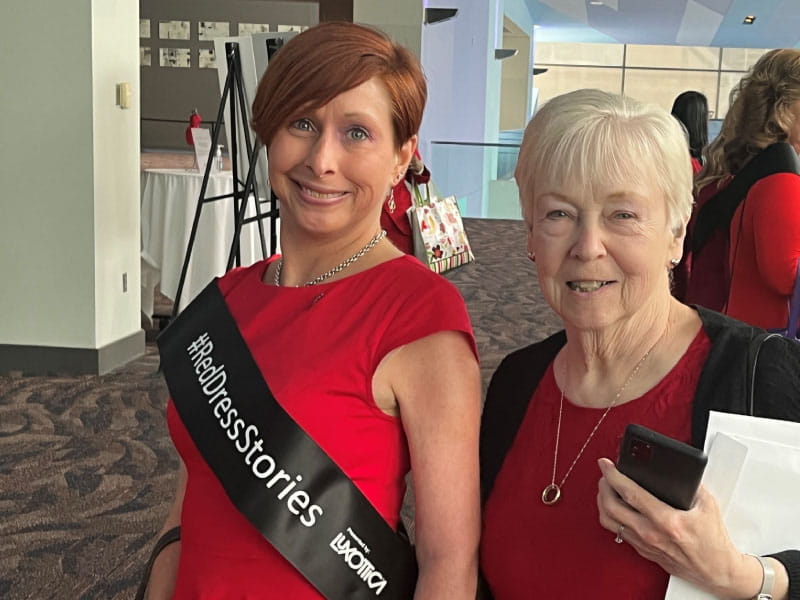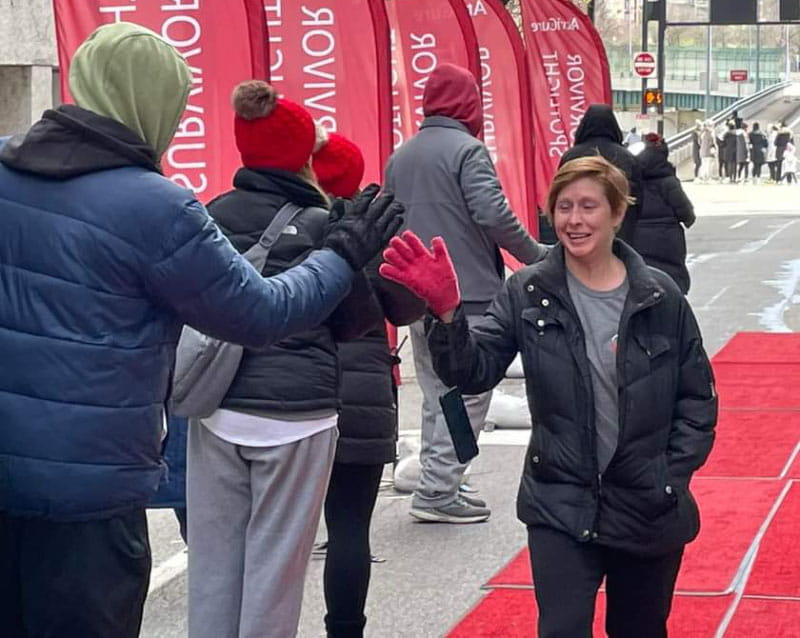Woman survives stroke in 2 parts of the brain at age 29
By Kellie B. Gormly, American Heart Association News

After a night of partying, 29-year-old Bethany Moeddel felt nauseous and had a headache. A hangover, she figured.
She couldn't sleep it off, though, because it was a big day. Her boyfriend's younger brother was receiving his first communion.
Moeddel made it to the church near her apartment in Totowa, New Jersey, and settled in to her seat for the service. The ill feeling continued. Afraid of vomiting in church, Moeddel went out to her car. It was a hot day, so she kept the door open.
The next thing she remembers is hearing a paramedic's voice.
"Do you have a living will?" she recalls the EMT asking.
"Why? Am I going to die?" she asked.
"I don't know," the EMT replied.
Two days later, Moeddel woke up in a hospital intensive care unit. She couldn't move her left side. Her best friend was sitting at her bedside. She explained that Moeddel had had a stroke – two, actually, both on the right side of her brain. The strokes were caused by blood clots. One was close to her forehead, another behind her ear. Moeddel's parents were on their way from Cincinnati, where she grew up.
Moeddel felt confused, angry and irritated by the doctors who kept asking her to do things like try to raise an arm. She didn't understand what was going on – or that she was paralyzed on her left side.
She was in the ICU for about a week and a half, then spent about two months in an inpatient rehabilitation center.
When it was time to be discharged, Moeddel had a wheelchair, a cane and a choice: Go to a nursing home or move back home with her parents.
Her folks drove from Ohio to get her.
"I thought in a few weeks, I would be back to normal," Moeddel said. "I didn't understand that it was permanent-ish."
That was 15 years ago.
Now 44, Moeddel can walk unassisted, climb stairs and drive, although she still has partial paralysis on her left side. She also still lives in Cincinnati.
Several years ago, she tried moving back to New Jersey. The experiment didn't last.
She bought a condominium in the building next to her mother; her dad died in 2012.
At the time of her stroke, she juggled two jobs while planning to get a paralegal degree. Now, she works a remote job doing customer service via e-mail and live chat.
She has volunteered with the Greater Cincinnati Stroke Consortium, visiting schools to teach kids about stroke symptoms. She used the American Heart Association's Cincinnati Heart Mini-Marathon & Walk as motivation to get moving. Last year, she walked more than 8 miles. This year, she made it almost as far.

Ruth Moeddel said she and her daughter are in a role reversal; instead of the adult child caring for an aging parent, the aging parent looks after the adult child.
Having lost a son to COVID-19, Ruth fears for her daughter's health. But, Ruth said, Bethany is tough and resilient.
"When she left the rehab hospital, they told me she'd never be out of a wheelchair," Ruth said. "She is doing amazingly well."
Stories From the Heart chronicles the inspiring journeys of heart disease and stroke survivors, caregivers and advocates.





